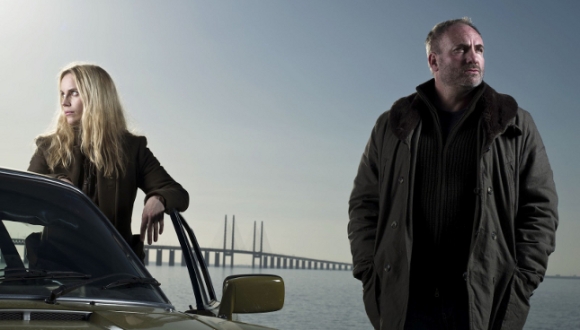“Come quickly, it’s Stockholm on the telly” my Mum shouts. It’s a BBC World documentary with a brief segment on the place of migrants in the city. Happy fruit and flower sellers on Hötorget speak proudly of how integrated they are, how their children have been born and raised as Swedes, and how glad they are for the opportunities afforded to them. Then the bright summery colours of the market fade as the voice-over concedes that “Sweden also has a darker side, as reflected in the recent popularity of Scandinavian crime fiction”. A bearded white baby-boomer is rolled out to read an extract from his latest novel, something about a dead woman, maybe strangled, something about the smell of flowers. This man’s books have sold well internationally, why is that asks the interviewer. Oh because it flies in the face of this utopian vision everyone has of Sweden, the sad reality that in some senses the country has become a “lost paradise”. Not that it took such a colossally ill-judged reference to Milton to raise the hackles of my family, as even the mention of ‘that’ genre had eyes rolling and groans rumbling.
The voice-over reflects that “this is of course fiction” with the qualification that it still “tells us something about the state of Sweden today”. Quite how well this crime novel matches Ulysses in capturing a city in a moment of time I’ll never know, as both will remain unread (or at least unfinished) for the foreseeable future as I busy myself unearthing the state of European relations in the 1930s from Agatha Christie’s Murder on the Orient Express.
This of course is not to begrudge the relentless success of these marauding Nordic writers and producers, but rather an appeal against the endless, countless, and generally quite pointless one-note readings of the region spun out by tireless features writers everywhere. Social commentary is certainly a kernel to the formula of Scandinavian crime fiction, but it is not the sole point of the genre as boldly stated by at least one British journo. Maybe I’m too wound up as a half-native, but what can the average viewer hope to learn from The Killing, The Bridge, or indeed The Girl with the Dragon Tattoo? Yes, Malmö and København are surprisingly close to each other after the opening of the Öresunds bridge. Migrant integration is a serious issue, look only to the Husby riots in Stockholm last spring for that. Racism is on many levels endemic, and worryingly institutionalised, although thousands have taken to the streets against this. Women are broadly speaking more liberated, but that isn’t for a moment to say misogyny has been eradicated. Likewise folks are generally a bit more open about sex, or at least not crippled by embarrassment at the hint of the subject, but neither does that preclude increasing levels of sexual violence.
Spelling out these issues in such ludicrously broad terms is making me feel like an idiot for even mentioning them, which is perhaps why I’m getting a tad fed up with crime fiction being taken as the outsider’s one true conduit to the ‘dark underside’ of the Scandinavian social model. To the uninitiated there is no doubt much to see and learn from a drama set in a completely new culture, yet for all this novelty and exoticism I doubt many will be blinded the simple fact that The Bridge is not a documentary, but rather an incredibly well paced thriller with interesting and three dimensional characters.
The new season, like the first, is packed with flourishes, twists and seemingly ceaseless turns as the Danish Martin Rohde and Swedish Saga Norén again team up to solve a new sprawling mystery. Their collaboration, and their poles-apart approach to personal interaction cuts through the whole of their investigation, and it is their mutual drive which keeps the viewer interested and up to speed with every step of the drama. Although there are more than a few cheap narrative tricks along the way (last minute SUDDEN CLIFFHANGER warnings abound), the show steps far enough away from the recognisable conventions of the emerging Scando-crime TV format to keep things interesting and unpredictable. Dissect or analyse the narrative for whatever social commentary you can find (and good luck with that in the new series), the real strength remains the characterisation of the show’s two leads, and the new series does plenty of digging into both their psyches and their past. The culmination of this latest series and its absolutely dizzying conclusion will have audiences howling for answers, in the best possible way.
While the second series kicks off with a double episode on BBC4 tonight, the bad news for the newcomer is that you really really REALLY have to start with the first series, as the first two minutes of the new series completely gives away the game of the latter. The good news is that the whole thing is readily available on UK Netflix right now, so there are no excuses not to get stuck in right this instance. Any object lessons in Scandinavian culture picked up from either series will be gladly received on the back of a postcard, questions likewise so.

